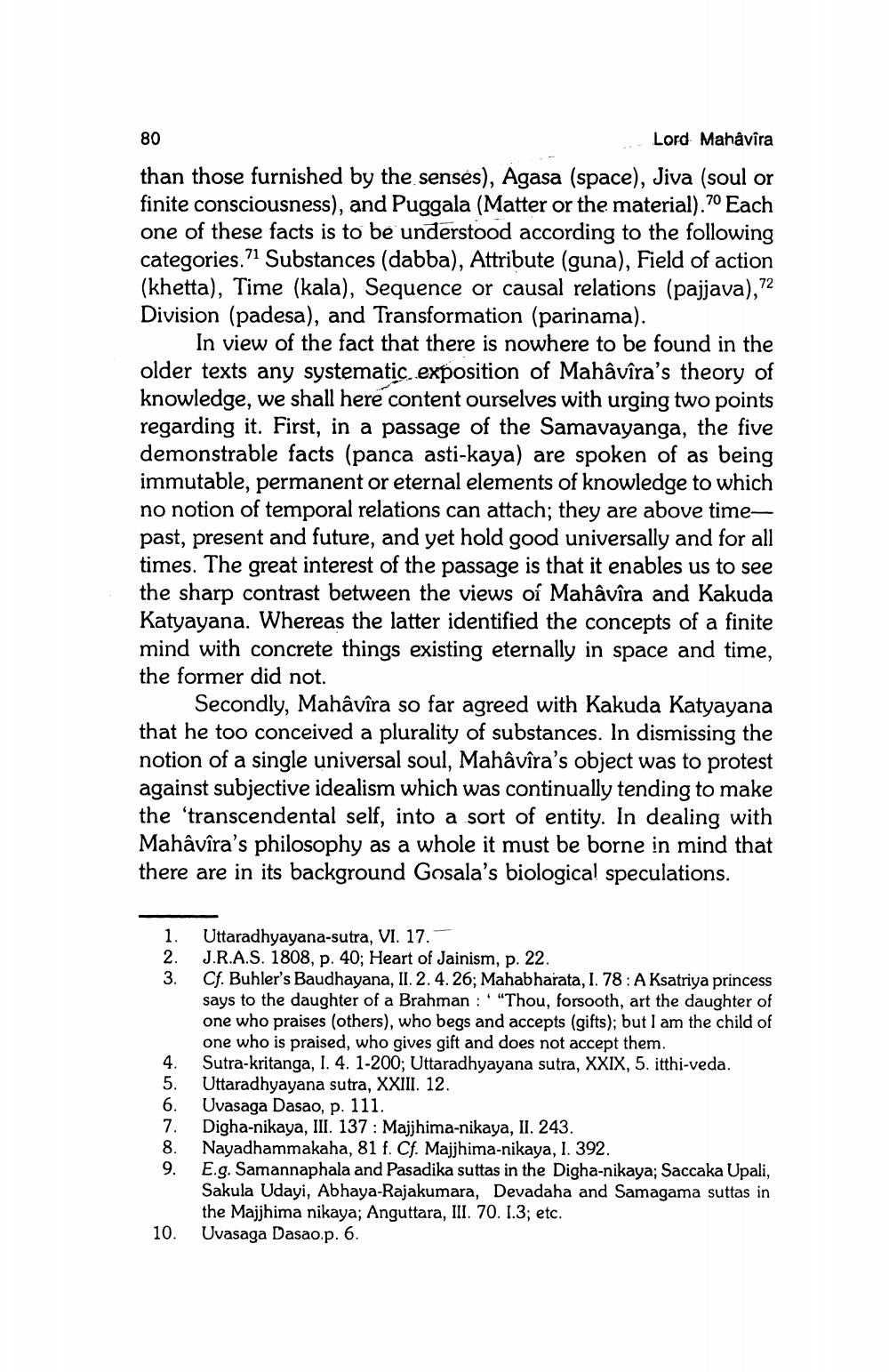________________
80
Lord Mahavira than those furnished by the senses), Agasa (space), Jiva (soul or finite consciousness), and Puggala (Matter or the material).70 Each one of these facts is to be understood according to the following categories. 71 Substances (dabba), Attribute (guna), Field of action (khetta), Time (kala), Sequence or causal relations (pajjava), 72 Division (padesa), and Transformation (parinama).
In view of the fact that there is nowhere to be found in the older texts any systematic. exposition of Mahâvîra's theory of knowledge, we shall here content ourselves with urging two points regarding it. First, in a passage of the Samavayanga, the five demonstrable facts (panca asti-kaya) are spoken of as being immutable, permanent or eternal elements of knowledge to which no notion of temporal relations can attach; they are above timepast, present and future, and yet hold good universally and for all times. The great interest of the passage is that it enables us to see the sharp contrast between the views of Mahâvîra and Kakuda Katyayana. Whereas the latter identified the concepts of a finite mind with concrete things existing eternally in space and time, the former did not.
Secondly, Mahâvîra so far agreed with Kakuda Katyayana that he too conceived a plurality of substances. In dismissing the notion of a single universal soul, Mahâvîra's object was to protest against subjective idealism which was continually tending to make the 'transcendental self, into a sort of entity. In dealing with Mahâvîra's philosophy as a whole it must be borne in mind that there are in its background Gosala's biological speculations.
Uttaradhyayana-sutra, VI. 17. J.R.A.S. 1808, p. 40; Heart of Jainism, p. 22. Cf. Buhler's Baudhayana, II. 2. 4.26; Mahabharata, 1. 78: A Ksatriya princess says to the daughter of a Brahman : "Thou, forsooth, art the daughter of one who praises (others), who begs and accepts (gifts); but I am the child of one who is praised, who gives gift and does not accept them. Sutra-britanga, I. 4. 1-200; Uttaradhyayana sutra, XXIX, 5. itthi-veda. Uttaradhyayana sutra, XXIII. 12. Uvasaga Dasao, p. 111. Digha-nikaya, III. 137 : Majjhima-nikaya, II. 243. Nayadhammakaha, 81 f. Cf. Majjhima-nikaya, I. 392. E.g. Samannaphala and Pasadika suttas in the Digha-nikaya; Saccaka Upali, Sakula Udayi, Abhaya-Rajakumara, Devadaha and Samagama suttas in the Majjhima nikaya; Anguttara, III. 70. 1.3; etc. Uvasaga Dasao.p. 6.
7. 8.
10.




